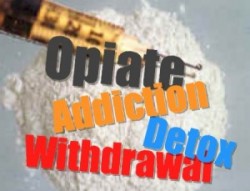Methadone clinics are one of the oldest and most trusted treatment options for opiate addiction treatment. While these facilities have been politically controversial in the past, they have been found to be extremely effective at helping patients avoid the issues associated with opioid drug abuse and treating addiction safely and effectively. If you are considering choosing a methadone clinic for your opioid addiction treatment, consider the benefits of this treatment option.
Benefits of Methadone Maintenance Treatment

Methadone can help treat opiate addiction.
Methadone maintenance treatment, or MMT, is a necessary option for many individuals. According to the Center for Substance Abuse Research, “This type of treatment views addiction as a disease rather than a psychological disorder or character flaw,” and through this view, it helps individuals who are unable to stop using opioids avoid further drug abuse. The solution to this issue is maintenance, which allows patients to receive a low methadone dose once a day that minimizes the symptoms associated with their opioid dependence so they can still live their lives as they receive the medication. Methadone, when provided through MMT:
- Reduces cravings
- Minimizes painful and uncomfortable withdrawal symptoms
- Does not cause euphoria when dosed properly
- Blocks the opioid receptors to help the individual avoid opioid abuse
This treatment option is extremely beneficial to many patients, and it can be continued for as long as necessary, as some patients choose to detox from the drug after several months or years and others prefer to stay on the medication indefinitely. Methadone provides a safe, effective way for patients to avoid the issues associated with their addictions and still live their lives to the fullest potential.
Benefits of Methadone Clinics
Many individuals believe that methadone clinics only dispense the medication to patients, but this is not true. These clinics also provide a number of other treatments, including behavioral therapies, both individual and group, employment and housing help, medical services, and drug education. HIV prevention and education is also provided at many of these facilities. MMT is a well-rounded treatment option for patients, and if an individual requires a method or therapy that is not available at a particular clinic, referrals can often be written by the medical staff for other facilities that do provide the necessary treatment.
While methadone itself does have a history of abuse and, as stated by the National Library of Medicine, “may be habit-forming,” clinics provide specific doses for patients at a safe amount, which helps to avoid the issue of abuse. This is why patients must visit the clinics every day, in order to receive the safest version of treatment possible.
Methadone clinics are an extremely helpful option to individuals who are in need of a pharmacological treatment for opioid addiction as well as a full treatment program. These facilities provide patients with safe, effective care that moves at their own pace, and according to Harvard Medical School, “more than 100,000 Americans” are maintained on methadone today.
Are You Interested Attending a Methadone Clinic for Opiate Addiction?
Call 800-678-5931(Paid Advertiser) to learn more about methadone treatment or to find a center in your area where you can begin your methadone maintenance as soon as possible.